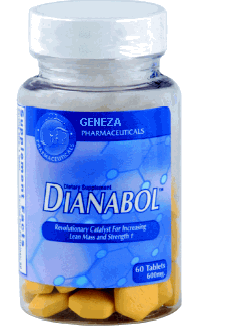The Godfather of Dianabol
 Once upon a time, elite athletes who took extreme doses of anabolic steroids were sure that the drugs helped them jump higher, run faster, grow stronger. But these notions had never been verified in a lab. So in 1975 a British physiology professor at the University of Leeds, G. Romaine Hervey, set up an experiment to determine whether high doses of steroids truly boosted athletic performance or just gave users a psychological edge. "We knew young men who lifted weights felt that anabolic steroids helped them lift more, but we really didn't know [if they did]," says Hervey, now 83. "And since steroids did seem to make them bigger, we wanted to see whether that was normal muscle or water or something else."
Once upon a time, elite athletes who took extreme doses of anabolic steroids were sure that the drugs helped them jump higher, run faster, grow stronger. But these notions had never been verified in a lab. So in 1975 a British physiology professor at the University of Leeds, G. Romaine Hervey, set up an experiment to determine whether high doses of steroids truly boosted athletic performance or just gave users a psychological edge. "We knew young men who lifted weights felt that anabolic steroids helped them lift more, but we really didn't know [if they did]," says Hervey, now 83. "And since steroids did seem to make them bigger, we wanted to see whether that was normal muscle or water or something else."
It was a worthy inquiry, but Hervey was undone by one monumental oversight: He allowed 25-year-old Tony Fitton to observe the study. An industrial chemist and a top British powerlifter, Fitton watched with delight as the 11 subjects, gathered in a hotel room near campus, received boxes of the anabolic steroid Dianabol -- a drug he had been regularly using for three years. The instant Hervey left the room, Fitton took over. "Lads, the dosages are a bit high," he said of Hervey's regimen of 20 five-milligram tablets a day for six weeks. "If you feel more inclined to taking just two tablets a day, I'll buy [the rest] off you." As Fitton recalls, almost everyone in the room accepted his offer. Naturally, the subjects did not show appreciable strength gains at the end of the study. Fitton, meanwhile, had procured a cache of Dbol that he could deal or dole out to his lifting buddies.